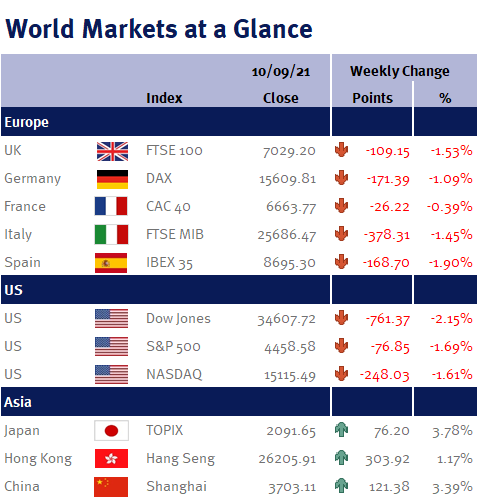Although we can argue about the semantics (recalibration or tapering), the underlying message was clear: low Eurozone interest rates are here to stay, as a reduction is akin to simply removing your foot from a car’s accelerator – tapering (or ‘recalibration’ as Christine Lagarde put it) certainly doesn’t mean stopping QE (i.e. putting your foot firmly on the brake pedal), let alone reversing QE (i.e. selling the bonds the ECB has previously purchased).
Consequently, the ECB is still going to be pumping massive amounts of money into the Eurozone economy – it is just that its pace will simply be less than it is currently.
It wasn’t a too dissimilar situation in the UK this week after the BoE Governor, Andrew Bailey, warned on Wednesday (8 September 2021) that a tighter monetary policy lies ahead, only for today’s (Friday 10 September 2021) GDP data to show that the UK’s economic recovery had ground to halt – thanks to the current supply disruptions and the spread of the Delta variant.
We have long argued that higher interest rates in the UK is a long way off – and today’s data further cements our conviction.
Looking ahead to this coming week we have UK employment (unemployment rate and weekly earnings); US & UK CPI inflation; US, UK & Chinese retail sales; and US, Eurozone & Chinese industrial production.
Additionally we have the Empire State Manufacturing Survey and the University of Michigan Consumer Sentiment Index.
Investment Management Team


